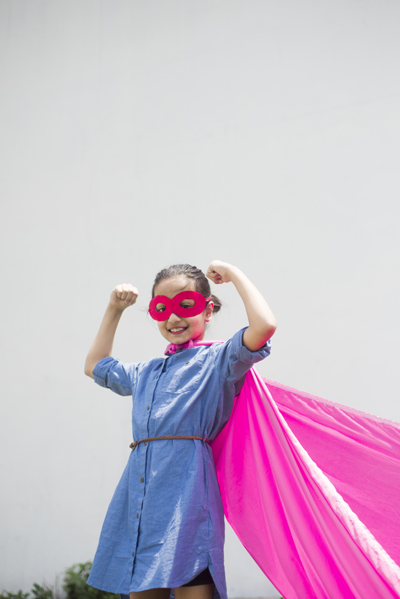The Confident Child: Children Learning from Their Mistakes
Everyone makes mistakes, and children are no exception. The most important thing is for them to learn from their mistakes and help them become better human beings in the process.
From the moment newborns are placed in our arms, we love them unconditionally and support them as they learn to sit, crawl, and walk. We guide them as they make friends, and comfort them after every bump and bruise. As parents our list is full of ways to nurture, support, teach, and provide for our children. After all we want to see them succeed. Although it may feel uncomfortable to some, we also need to provide opportunities for learning that come from making mistakes. In fact, letting children learn from their mistakes helps them build resilience which is essential for their becoming confident, capable, happy, and successful adults later in life.
“Failure is not fatal, but failure to change might be,” - John Wooden
Failing can be reframed a bit more positively as trying, practicing, and putting in effort — and it’s nothing to be ashamed of. After all, it’s unrealistic to be good at everything in the first attempt. Children who can’t tolerate failure become vulnerable to anxiety, and it can lead to bigger problems when they do inevitably fail. Whether in doing homework, developing friendships, or playing soccer, learning is enriched through mistakes and failures.

“Success is sweet, the sweeter if delayed and attained through manifold struggles and defeats.” - A. Bronson Alcott, 18th century famous teacher and educator.
There is much pressure on children these days to excel. But it’s important for parents to let the children know they are bound to make mistakes or fail sometimes and that it is totally okay. The role of a parent is to support and guide, rather than to do for them what they need to learn to do for themselves. It is often when things aren't working and there is a challenge that children have an opportunity to develop coping and resilience skills. Coping skills are like muscles: we don't know how strong they truly are until we need to use them. And they become stronger the more we use them In fact, it’s a sign of bravery to try something new, knowing that it might not work. It’s important to remember that genuine self-confidence - in adults as well as children - is created by being good at something, especially when that requires consistent and long-term effort.
“Failure is a great teacher and, if you are open to it, every mistake has a lesson to offer,” – Oprah Winfrey.
Allowing children to fail is not always easy for parents. It goes against our natural instinct to see them to succeed. Fortunately, you don't have to go out of the way to create scenarios, whereby they can safely. Such scenarios exist in everyday life. All you just have to get out of the way. Here are simple suggestions to help children learn from their mistakes.
- Acknowledge that you don't expect your children to be perfect.
- Let them know your love is unconditional, regardless of their mistakes or failures as long as they are putting in their best efforts.
- Don't rescue children from their mistakes. Instead, help them focus on solutions. Children need to know that every action has its own direct or indirect consequences, and they need to bear those consequences when things go wrong.
- Provide examples of your own mistakes, the consequences, and how you learned from them.
- Encourage them to take responsibility for their mistakes and not blame others.
- Avoid pointing out their past mistakes. Instead, focus on the one problem at hand.
- Praise them for their ability to admit their mistakes.
- Praise them for their efforts and courage them to overcome setbacks and mistakes.
- Teach them how to apologize when their mistakes have hurt others.
- Help them to also see the good side when things go wrong.
- When you see that your children are struggling or having a hard time, empathize with them.
- Let your children know that mistakes are normal, and are an important part of any learning.


